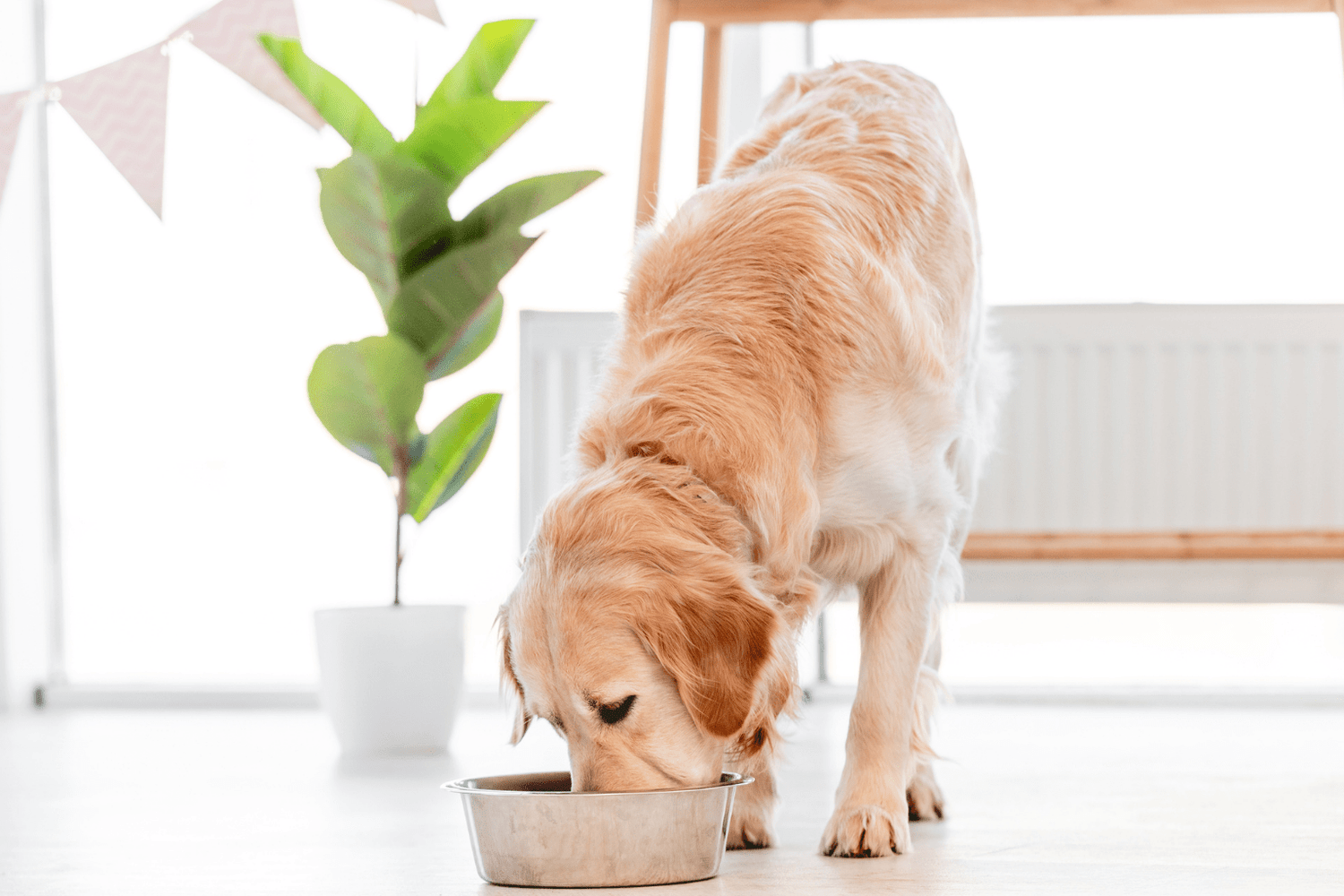Key Takeaways
- Plain, cooked white rice is safe for most dogs and is often recommended for digestive issues.
- Dogs with diabetes, grain allergies, or those on low-glycemic diets may need rice alternatives.
- Veterinarians commonly suggest rice as a gentle food during digestive upset in dogs.
- Rice can provide relief and aid digestion when a dog experiences tummy troubles.
Table of Contents
- Is Rice Safe for Dogs? What Every Pet Parent Needs to Know First
- White vs. Brown Rice for Dogs: What's Healthier for Our Pets?
- The Real Benefits of Rice in Your Dog's Diet
- How to Prepare and Feed Rice Safely, Step-by-Step for Pet Parents
- Troubleshooting: When Rice Isn't Enough (Or Is the Wrong Choice)
- Is Rice the Best? Healthy Grains and Better Alternatives Explained
- Home Remedy How-To: Simple, Vet-Approved Rice Meal for Sick Dogs
- BestLife4Pets Approach, Supporting Sensitive Stomachs with Natural, Gentle Care
Is Rice Safe for Dogs? What Every Pet Parent Needs to Know First
When my Border Collie mix Tango had those middle-of-the-night tummy troubles, I found myself frantically Googling "rice is good for dogs" at 2 AM. The relief when our holistic vet confirmed that plain, cooked rice is not only safe but actively helpful for most dogs during digestive upset was enormous.
Rice appears in countless commercial dog foods because dogs digest starchy carbohydrates surprisingly well. Unlike cats, who are obligate carnivores, dogs evolved alongside humans eating varied diets that included grains. Veterinarians routinely recommend the classic "rice and chicken" bland diet because rice provides gentle, easily absorbed energy without taxing an already sensitive digestive system. For dogs who need extra support with digestive upset, consider the Dog De-Wormer Broad Spectrum for gentle support when digestive disturbances arise.
That said, rice isn't right for every dog. Dogs with confirmed grain allergies, diabetes requiring strict blood sugar control, or those thriving on grain-free diets may need alternatives like plain pumpkin or sweet potato. When Bailey, a Labrador in our community, experienced diarrhea after a garbage-raiding adventure, his family's gentle rice meals helped firm up his stool within 48 hours, but always consult your vet if symptoms persist beyond a few days. If your dog struggles with allergies or immune issues, you may want to explore the Dog Allergy Relief & Immune Support for additional help.
White vs. Brown Rice for Dogs: What's Healthier for Our Pets?

| Feature | White Rice | Brown Rice |
|---|---|---|
| Digestibility | Highly digestible, gentle on upset stomachs | Higher fiber, may be harder to digest during illness |
| Best Used For | Diarrhea, vomiting recovery, sensitive digestion | Healthy adult dogs, weight management, regular meals |
| Glycemic Impact | Higher glycemic index, quick energy | Lower glycemic index, steadier blood sugar |
| Nutrients | B vitamins, easily absorbed carbs | More fiber, magnesium, antioxidants |
The choice between white and brown rice depends entirely on your dog's current health status. White rice wins for digestive emergencies because it's processed and easier to break down when your pet's system is already stressed. The lower fiber content means less work for inflamed intestines, which is why veterinarians specifically recommend white rice during the first few days of GI upset.
Brown rice offers more nutritional density for healthy dogs who can handle the extra fiber. However, that same fiber can worsen diarrhea or cause gas in sensitive pets. Many holistic veterinarians suggest white rice as a short-term healing tool, then transitioning to brown rice or other whole grains once your dog's digestive system has recovered. For more on how diet impacts your dog's health, you might enjoy reading about can dogs get gum disease and how nutrition plays a role in oral health.
For dogs managing diabetes or weight concerns, brown rice's lower glycemic index provides steadier energy without dramatic blood sugar spikes. But timing matters, save brown rice for when your pet is feeling well, not during recovery periods.
The Real Benefits of Rice in Your Dog's Diet
Rice supports your dog's health in surprisingly practical ways. As a bland, easily digestible carbohydrate, it provides steady energy without the fats or complex proteins that can trigger digestive upset. During illness, rice helps maintain hydration by encouraging dogs to eat when they might otherwise refuse food entirely.
Top 3 Benefits of Rice for Dogs:
- Digestive Relief: Absorbs excess water in the intestines, helping firm loose stools naturally
- Energy Without Stress: Provides calories and B vitamins without taxing the digestive system
- Palatability: Most dogs readily accept rice, making it easier to reintroduce food after fasting
Lucy, a rescue pup in our community, arrived at her new home with severe stress-related diarrhea. Her family's patient approach with small, frequent rice and chicken meals helped her system calm down over five days, allowing her personality to finally shine through. The key was consistency and simplicity, exactly what rice provides during uncertain times.
How to Prepare and Feed Rice Safely, Step-by-Step for Pet Parents
Basic Rice Preparation:
- Rinse 1 cup white rice in cold water until water runs clear
- Boil in 2 cups plain water (no salt, butter, or seasonings)
- Simmer covered for 18-20 minutes until fully tender
- Cool completely before serving, hot rice can burn sensitive mouths
For digestive upset, veterinarians recommend the classic 2:1 ratio: two parts rice to one part plain boiled chicken or turkey. Cook proteins separately in plain water, then mix when both have cooled. This bland combination provides gentle nutrition without overwhelming a sensitive system.
If your dog is experiencing constipation or scooting, you may want to try the Scoot Stopper & Anal Gland Support for targeted relief.
Troubleshooting: When Rice Isn't Enough (Or Is the Wrong Choice)

While rice is good for dogs in many situations, it's not always the answer. Watch for red flags that indicate rice may worsen your pet's condition or that professional veterinary care is needed immediately. Persistent vomiting, blood in stool, or lethargy that worsens after 24 hours requires medical attention.
Red Flags to Watch For:
- Continued vomiting after rice meals
- Allergic reactions like hives, excessive scratching, or facial swelling
- Rapid weight gain from overfeeding rice portions
- Blood sugar spikes in diabetic dogs
- Worsening lethargy or dehydration signs
Common mistakes include using seasoned rice, undercooked grains, or continuing rice meals too long. Bentley, a senior Spaniel in our community, gained unwanted weight when his family used rice as a daily meal replacement rather than a temporary digestive aid. His veterinarian helped create a balanced plan that used rice strategically rather than routinely.
Dogs with diabetes, severe food allergies, or obesity may need alternatives to rice entirely. These pets benefit more from veterinarian-prescribed diets or natural remedies specifically formulated for their conditions. For more information on the science behind canine nutrition, see this authoritative resource on whether dogs can eat rice.
Is Rice the Best? Healthy Grains and Better Alternatives Explained
Rice competes with several other gentle options for supporting digestive health. Pumpkin puree, oatmeal, and sweet potato each offer unique benefits depending on your dog's specific needs and tolerance levels.
| Option | Best For | Digestibility | Key Benefit |
|---|---|---|---|
| White Rice | Diarrhea, vomiting recovery | Excellent | Bland, binding effect |
| Pumpkin Puree | Both diarrhea and constipation | Very good | Fiber regulation |
| Oatmeal | Heart health, sustained energy | Good | Beta-glucan fiber |
| Sweet Potato | Sensitive stomachs, nutrition | Good | Vitamins A and C |
Many holistic veterinarians prefer pumpkin for chronic digestive issues because it naturally regulates both loose and firm stools. Rice works best for acute situations where immediate digestive rest is needed.
The choice often depends on your dog's long-term health goals. Rice provides quick relief and energy, while alternatives like oatmeal offer sustained nutrition for daily feeding. Some pet parents rotate between options based on their dog's current needs rather than relying on one solution. If you're interested in more ways to keep your dog healthy, check out these tips for exercising dogs indoors to support overall wellness.
Home Remedy How-To: Simple, Vet-Approved Rice Meal for Sick Dogs
Classic Bland Diet Recipe (2:1 Ratio):
- Cook 1 cup white rice in 2 cups water until very tender
- Boil 1/2 cup plain chicken or turkey (no skin, bones, or seasoning)
- Mix cooled rice and protein in 2:1 rice-to-meat ratio
- Serve small portions every 3-4 hours
- Continue for 2-3 days maximum
Wait 12-24 hours after vomiting stops before offering this gentle meal. Start with tiny portions, just a tablespoon for small dogs, and increase gradually if your pet keeps food down successfully.
Transitioning back to regular food requires patience. Mix increasing amounts of your dog's normal food with decreasing rice portions over 3-4 days. This prevents rebound digestive upset that can occur when switching foods too quickly. For additional support during recovery, the Dog Laxative Constipation Relief can help maintain healthy digestion.
BestLife4Pets Approach, Supporting Sensitive Stomachs with Natural, Gentle Care

While rice provides temporary relief, many pet parents in our community have found lasting digestive support through our gentle homeopathic pellets. Unlike liquids that pets often resist, our tiny, tasteless pellets dissolve easily and work from the inside out to support your dog's natural healing processes. If you're looking for a broader range of natural solutions, explore our natural dog supplements & remedies for common dog health problems to help your pet thrive.
"Bailey's bounce-back amazed us. After two days of rice meals and BestLife4Pets digestive support pellets, his appetite returned and his energy came back stronger than before. The combination gave him exactly what he needed.", Sarah M., Golden Retriever mom
For further reading on canine health, you may find this scientific review of canine nutrition and dietary management helpful.
Frequently Asked Questions
Is plain, cooked white rice safe for all dogs, and when is it recommended?
Plain, cooked white rice is safe for most dogs and is often recommended by veterinarians to support digestion during tummy troubles. It provides gentle, easily absorbed energy that can help soothe an upset stomach.
What are the differences between white rice and brown rice for dogs, and which is better for digestive issues?
White rice is more easily digested because it has the outer bran layer removed, making it gentler on sensitive stomachs. Brown rice contains more fiber and nutrients but can be harder to digest, so white rice is usually preferred during digestive upset.
Are there any dogs that should avoid rice, and what are suitable alternatives for them?
Dogs with grain allergies, diabetes, or those on low-glycemic or grain-free diets may need to avoid rice. Suitable alternatives include plain pumpkin or sweet potato, which can also support digestion without triggering sensitivities.
How should rice be prepared and fed to dogs to ensure it is safe and beneficial during digestive upset?
Rice should be plain and fully cooked without any seasoning, oils, or additives. Serve it in small, manageable portions mixed with a gentle protein like boiled chicken to help ease digestion and provide comfort during tummy troubles.



